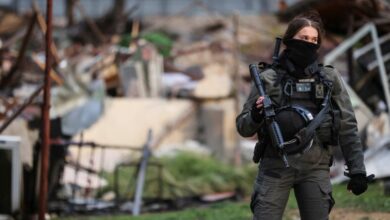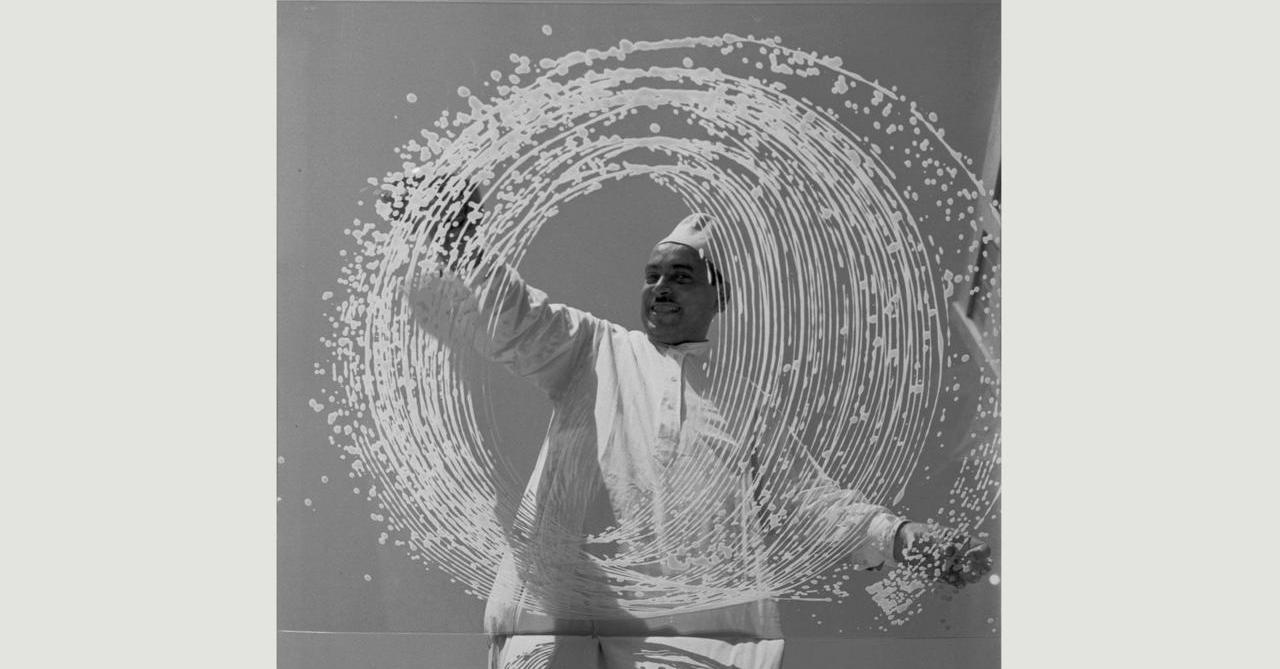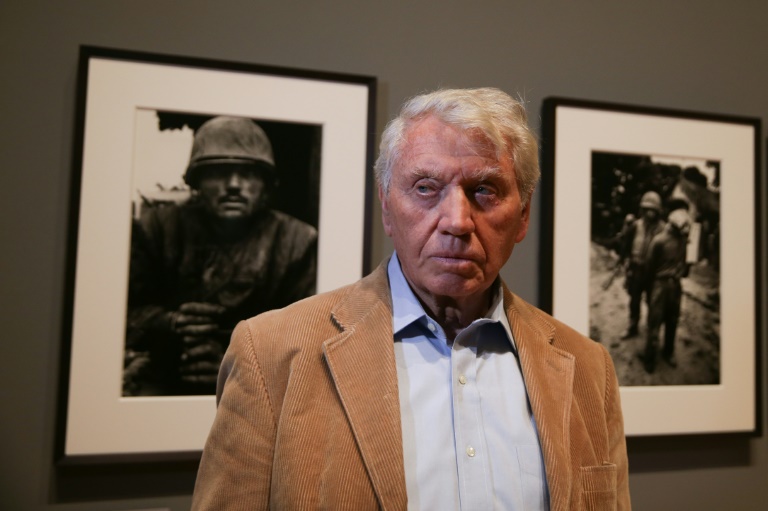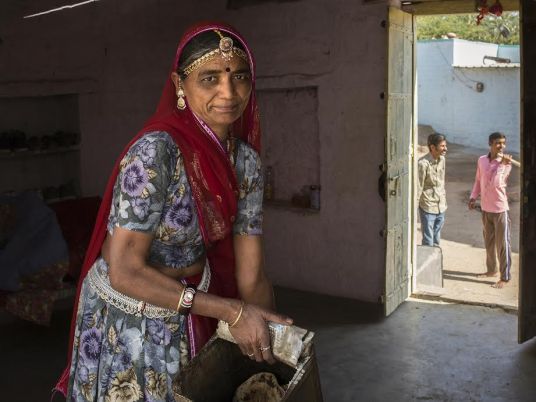Darb 17 18, a nonprofit cultural organization, together with the Cairo Jazz Club, is currently organizing a series of art shows and performances. Mawaweel, the joint event, is a full Ramadan late-evening program that runs throughout the month.
The Oscarisma Studio opened the night with a silent theatrical performance called "Sweet China." The evening’s program promised that the show would portray "the irony of the advanced world waiting for the latest production from the Chinese market." The message, however, did not quite come across.
The performance told the story of a couple buying a house-choir robot from a dodgy salesman. The salesman and the robot turn out to be robbers and burglarize the unfortunate couple's home. The only visible reference to China is a "Made in China" sign on the cardboard box from which the robot enters the stage. Possibly the irony resides in the fact that “advanced world” consumers are robbed of their money by useless products produced in China. Regardless of the success of the message, it was an enjoyable performance, filled with good humour and catchy music, while the mimes showed off their skillful moves.
A traditional band followed the mimes. The music was absorbing, with the drummers in particular playing almost hypnotic beats. The addition of two Sufi dancers whirling in colorful dresses elevated the show from good to great.
But what really makes an evening at the Darb Center worthwhile is the variety of arts and spectacles if offers.
Between shows, one can visit two exhibitions installed in a building next to the stage. On the ground floor, artist May al-Hossamy displayed some of her pictures from the Souq al-Gomaa. The market’s streets at first look to be filled with rubbish, but Souq al-Gomaa is more of a recycling center than a landfill: pieces of broken dolls, electronics, toys, even some antique furniture is for sale. A few months ago, the market caught fire and little was spared by the blaze; al-Hossamy’s documentary about the destruction can also be viewed at the exhibition.
On the second floor was something entirely different. Ali Abdel Mohsen, an artist and writer (whose reporting appears frequently Al-Masry Al-Youm), is an original. His drawings are nightmarish and gory, but display a unique perspective and a lot of skill. People morph into monsters; oppressive buildings bury a pile of dead bodies; two lascivious women with long beaks, their flesh rotting and their orifices sprouting ambiguous substances, stand next to a man who is eating a roll of bank notes.
In Mohsen’s drawings, civilization brings corruption, misery, and suffering. On a map of Egypt, Cairo, the biggest city and the country's power center, spreads its sinister black tentacles throughout the territory. In another drawing, a monstrous leader sits on a throne overseeing the bestial acts he is forcing his subjects to perform in exchange for order.
Storyteller Abeer Soliman concluded the evening on a lighter note with her reinterpretation of Naguib Mahfouz’s tale “Nights of the Thousand Nights.” She was passionate and convincing, keeping the crowd hanging on her words for the entire performance, while a slide show projected on the background and well-suited music and sounds built up the atmosphere.




